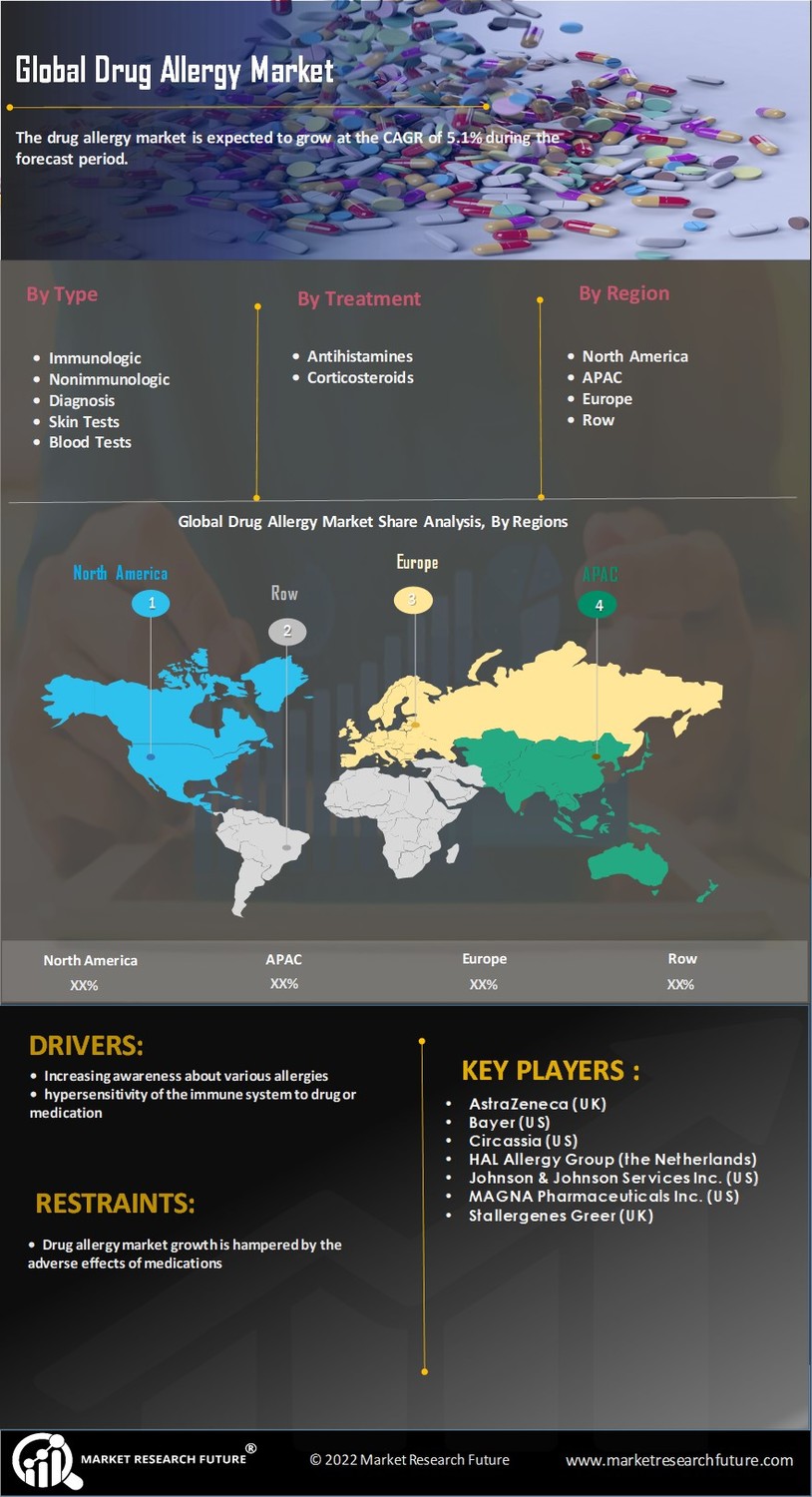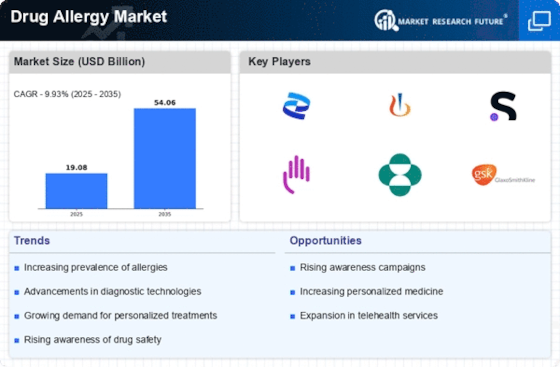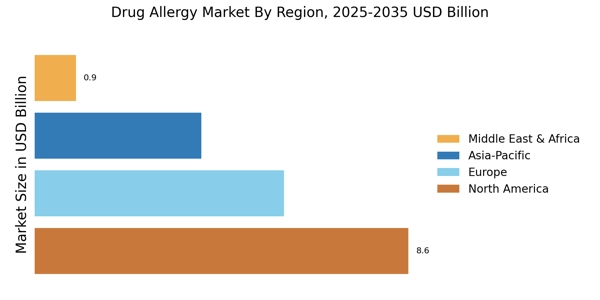Rising Healthcare Expenditure
The increase in healthcare expenditure is a notable driver in the Drug Allergy Market. As countries allocate more resources to healthcare, there is a corresponding rise in spending on allergy-related treatments and diagnostics. This trend is particularly evident in regions where healthcare systems are evolving to meet the needs of an aging population, which is more prone to drug allergies. The global healthcare expenditure is projected to reach trillions of dollars in the coming years, with a significant portion directed towards allergy management. This influx of funding is likely to stimulate innovation within the Drug Allergy Market, leading to the development of new therapies and improved patient care. Additionally, as healthcare systems prioritize preventive measures, there may be an increased focus on allergy testing and education, further driving market growth.
Increasing Incidence of Drug Allergies
The rising incidence of drug allergies is a pivotal driver in the Drug Allergy Market. Recent studies indicate that approximately 10% of the population experiences some form of drug allergy, with certain demographics being more susceptible. This increase in prevalence necessitates enhanced diagnostic and therapeutic options, thereby propelling market growth. As healthcare providers become more aware of the implications of drug allergies, there is a growing demand for specialized treatments and preventive measures. The Drug Allergy Market is likely to expand as more patients seek solutions for managing their allergies, leading to increased investments in research and development. Furthermore, the heightened awareness among patients regarding drug allergies is expected to drive the demand for allergy testing and personalized medicine, which could further stimulate market dynamics.
Growing Demand for Personalized Medicine
The shift towards personalized medicine is a crucial driver in the Drug Allergy Market. As healthcare evolves, there is an increasing recognition that treatments should be tailored to individual patient profiles, particularly in the context of drug allergies. Personalized medicine approaches, which consider genetic, environmental, and lifestyle factors, are gaining traction. This trend is supported by the growing body of research linking genetic markers to drug allergies, suggesting that personalized treatment plans could significantly improve patient outcomes. The Drug Allergy Market is likely to see a surge in demand for therapies that are customized to the unique needs of patients, potentially leading to a more effective management of drug allergies. Furthermore, the integration of pharmacogenomics into clinical practice may enhance the safety and efficacy of drug therapies, thereby driving market growth.
Regulatory Support for Allergy Management
Regulatory bodies are increasingly focusing on the management of drug allergies, which serves as a significant driver for the Drug Allergy Market. New guidelines and policies aimed at improving drug safety and efficacy are being implemented, encouraging pharmaceutical companies to invest in allergy research and development. For example, regulatory agencies are promoting the use of risk assessment tools and safety protocols that prioritize patient safety in drug administration. This regulatory support not only fosters innovation but also enhances public trust in allergy management practices. As a result, the Drug Allergy Market is expected to benefit from increased funding and resources allocated to allergy research, leading to the development of new therapies and diagnostic tools that address the growing concerns surrounding drug allergies.
Technological Innovations in Allergy Testing
Technological advancements in allergy testing are transforming the Drug Allergy Market. Innovations such as molecular diagnostics and point-of-care testing are enhancing the accuracy and speed of allergy detection. For instance, the introduction of next-generation sequencing technologies allows for the identification of specific allergens at a molecular level, which can lead to more tailored treatment options. The market for allergy testing devices is projected to grow significantly, with estimates suggesting a compound annual growth rate of over 10% in the coming years. These advancements not only improve patient outcomes but also increase the efficiency of healthcare systems. As a result, the Drug Allergy Market is likely to benefit from the integration of these technologies, which could lead to more effective management of drug allergies and a reduction in adverse drug reactions.


















Leave a Comment